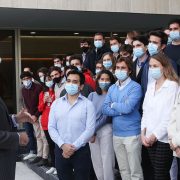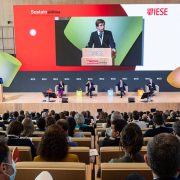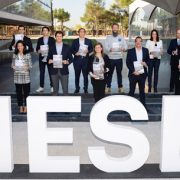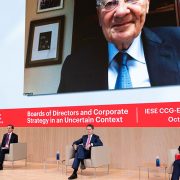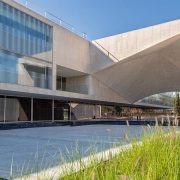FT ranks IESE’s MBA in world’s top 10, 3rd in Europe
- IESE MBA stands out for its internationality, high levels of student satisfaction, ability to help students reach their goals, and focus on sustainability
The FT Global MBA Ranking 2022, released today by the Financial Times, ranks IESE Business School’s full-time MBA among the top ten programs globally (no.10) and third in Europe.
The ranking confirms IESE’s position as one of the best business schools in the world.
“Our consistent position within the top ten schools globally points to the strength and depth of the IESE MBA”, says Marc Badia, IESE Business School´s Associate Dean for MBA & MiM programs. “It´s a program that is constantly innovating, with a curriculum covering cutting-edge business topics such as AI and emerging technologies, an exceptional entrepreneurship ecosystem to develop budding entrepreneurs, and the option for students to deep dive further into specific areas like Data Analytics & Digital Business, Entrepreneurship & Innovation or Sustainability.”
The 2022 Financial Times ranking particularly highlights the international nature of IESE’s MBA, with the program ranking no.2 for International Course Experience. As well as studying business in an international context, IESE MBAs have the opportunity to study immersive modules in key business hubs like Dubai, Nairobi, New York, Sao Paulo and Shanghai, and gain first-hand business experience across different continents.
In addition, the school’s highly international faculty and student body allow for richer classroom discussions that draw upon the diverse perspectives and business experiences of the cohort, faculty, and course content.
The care and personal attention IESE provides students throughout the program – which includes small group exercises, personalized feedback and support, and an open-door policy for faculty, among others – were also contributors to the high levels of satisfaction alumni expressed in their IESE experience. According to the British publication, survey respondents’ average score for how satisfied they were with IESE was 9.57 on a ten-point scale.
IESE’s ability to help students reach their stated goals or reasons for doing an MBA also stood out as key to IESE’s strong performance, with 90% saying they had achieved their aims.
Finally, IESE’s MBA ranks first for Environmental, Social & Governance (ESG) for the third consecutive year. The ESG metric looks at core course content dedicated to ethics, social and environmental issues. This reflects the school’s focus in its teaching, research and operations to promote a holistic consideration of sustainability, which looks at everything from how companies treat the world around them, to how they treat each employee.
This latest result continues IESE’s strong performance in the major international rankings over several years. Including:
- 1st in the World according to The Economist 2021 MBA ranking
- 2nd in Europe for the Bloomberg Businessweek 2021 MBA ranking
Download the complete FT ranking here and check out our guide to interpreting business school rankings.


